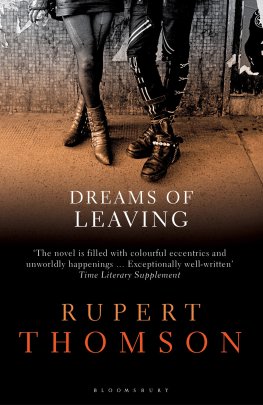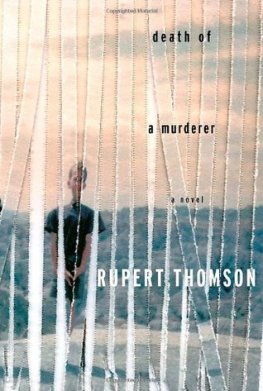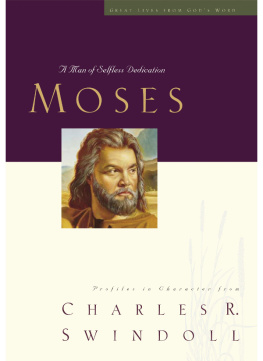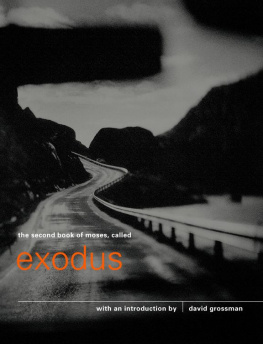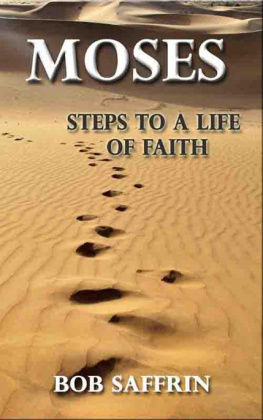Rupert Thomson
Dreams of Leaving
I tried to write a novel when I was twenty. I was living in Athens at the time, in an apartment that was, quite literally, unfurnished. I produced 160 self-conscious, introspective pages on a table made of fruit crates, then ground to a halt. Back in London, I started work at an advertising agency, but the desire to write never left me, and in November 1982, after four years as a copywriter, I decided to try again. I resigned from the agency, moved a friend into my council flat, and gave my ancient, rusty Vauxhall Viva its first ever service. As December approached, I drove south, making for a village in Italy. After a lengthy interview with a well-known comic actress, during which we covered subjects as various as kleptomania and homosexuality, I had secured the job of winter caretaker for her converted Tuscan farmhouse. In return for painting walls and treating beams for woodworm, I would be able to live rent-free until the spring. I remember standing on the deck of the ferry and watching the stained, off-white English cliffs recede. I was wearing an ankle-length brown coat, red tartan trousers, and a pair of battered Doc Martens. My hair was dyed orange. I was twenty-seven. I had drawn a line through my life, and everything was going to be different from now on. I would write and write and write, and perhaps, in the end, something halfway decent would emerge. I breathed the cold, salty air of what felt like an entirely new existence.
There was no heating in the house, and I worked in the kitchen, huddled against a free-standing gas stove. I typed on sheets of yellow foolscap, using a maroon Olympia portable I had inherited from my last agency. I was disciplined about the hours I put in: I would start at three in the afternoon and finish at one in the morning. The routine felt natural, comfortable, even seductive. At that early stage, and influenced, I think, by Machado de Assis, I restricted myself to short chapters with titles of their own, some of which Strange Time for a Drowning, Crime is Order eventually made their way into the finished novel. With its irreverent, fractured narrative, that first draft felt like a distillation of the life I had been living for the past few years, and it came as no great surprise when a friend later claimed I had written his biography.
For several weeks I saw almost no one. My only companions were birds, stray cats and vermin. The first Italian words I learned, much to the amusement of the man who ran the village shop, were trappola di topi mousetrap. Then, in February, I met an American couple who were renting a farmhouse further down the track. Richard Wertime, an academic, was also trying to write a book. We became friends. In return for the occasional dinner, I would drive him to places he couldnt otherwise have seen, and it was during one such expedition that I outlined my novel to him. Apparently, I talked non-stop for forty-five minutes, all the way to Siena. Three years later, on the outskirts of Philadelphia, I gave Dick my manuscript. When he handed it back, he told me he felt cheated. Wheres the book you described on that drive to Siena that had us all so riveted? he said. This isnt it. I knew he was right. That autumn I began work on a new version in a friends bedroom in Tokyo, and it was in that city that I teased out what would become the books central metaphor, the idea of a place no one can leave because no one has ever left.
The novel was written over a period of about four years, its progress often interrupted by the need to earn money. At last, and back in London, I felt it was finished. What to do next, though? The only person I knew in publishing was Nigel Newton, but I had hardly seen him since leaving university. In September 1986, I made eight copies of the manuscript then drove round the city, dropping half of them off with agents, the other half with publishers. One copy went to Nigel. Another went to Liz Calder, the only editor I had ever heard of. Like many writers starting out, I probably put too much into Dreams of Leaving. This was partly inexperience, and partly the irrational but compelling fear that I might never write again. Twenty-five years later, though, I can still feel a kind of electricity on every page. Its the charge thats given off when someone is putting down sentences for the first time, when someone is in the grip of what will turn out to be a lifelong passion. Even so, I steeled myself for rejection. To my amazement, three of the agents showed an interest in the manuscript. Meanwhile, in an outrageous piece of serendipity, Nigel and Liz had joined forces to set up a new publishing house called Bloomsbury, and by Christmas 1986 I had a deal.
Dreams of Leaving was published on 25 June 1987. The book achieved an instant notoriety, not least because the title and the name of the author could only be found on the back cover; all there was on the front was a painting by a girl I used to go out with. The launch was held at a friends house in the East End. Once owned by a silk-merchant, its walls shimmered pale-blue, and its bare wooden floorboards dipped and sloped. The power had not been switched on yet, and as dusk came down it became difficult to see. No one had thought to buy candles. The party ended in virtual darkness. A group of us spilled out on to the street and walked through the summer night to a restaurant on Brick Lane. My first fan letter arrived a few days later. Written on sheets of dark-blue paper, it was signed by Budgie, the drummer of Siouxsie and the Banshees, a band I had seen at least three times.
When people mention books that changed their lives, they are usually referring to books they have read, but Dreams of Leaving was a book I wrote, and it changed my life forever. In March 1988, some nine months after publication, I received a phone-call from a Hollywood director. Like Alan Parker, he was making the transition from commercials to features, and he thought Dreams of Leaving had the makings of a memorable film. Landing in Los Angeles a fortnight later, I was collected from the airport in a steel-grey stretch limousine. I stayed on Sunset Boulevard, at the Mondrian, then in a house at the foot of the Hollywood Hills that had previously belonged to Michael Mann. I was offered $50,000 to write a first draft of the screenplay. Predictably, perhaps, the idea of a village that no one has ever left proved problematic I remember a meeting with an influential producer in Century City.
I dont get it, he said. Why dont they just walk out?
Its psychological, I said.
His shrewd look masked a total lack of comprehension.
Its never been done before, I went on. The barriers in peoples minds. Feeling I was losing him, I tailed off.
The producer leaned back, deep in thought. Maybe if we gave the policemen guns. .
Later that summer, as we drank white wine on his yacht off the coast of Malibu, he told me that the screenplay was too European, and not long afterwards the project collapsed. I wasnt too bothered. I had spent a couple of unforgettable summers in Hollywood, and the money I had been paid would finance the writing of my second novel.
But another twist was still to come. On returning to London in September 1988, I met the directors English girlfriend. It was she who had first read and loved my book. It was she who had suggested it might make a feature film. By October, we were seeing each other. We have been together ever since.
Rupert Thomson
2012
Strange Time for a Drowning (1956)
It was a hot day to be wearing black. The coffin-bearers counted themselves fortunate. The coffin resting on their shoulders measured less than four feet in length. It was also empty. The childs body had never been found.

